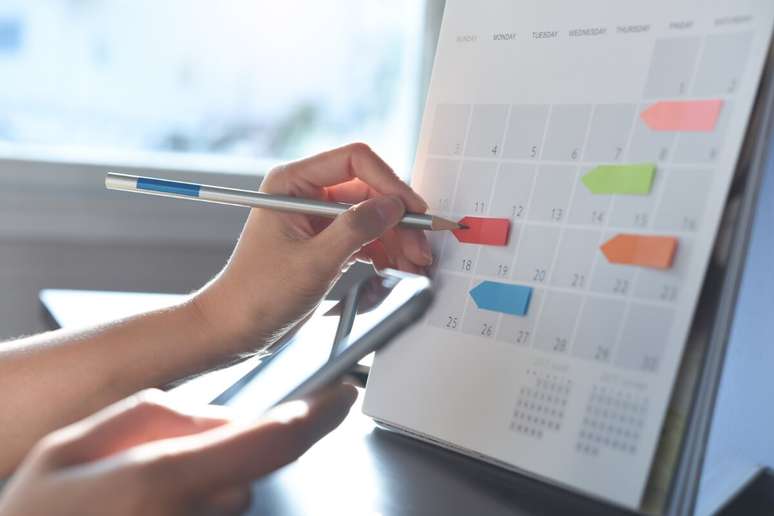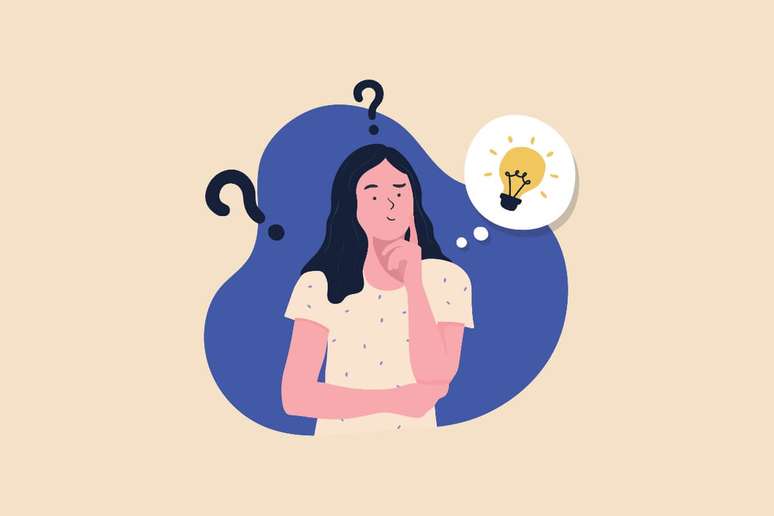The neuroscientist explains how some aspects contribute to good brain performance
Decisions are a part of life, but it’s not always easy to choose the path to follow, especially if your mind is overwhelmed. Surely you have noticed that at the beginning of the day it is easier to decide between getting up, going to sleep, brushing your teeth or drinking coffee, and not for nothing. When we wake up, our body is “recharged”, so the brain is better able to define the right choices. But, later in the day, this could change.
The brain manages energy
Our brain is limited by available resources. Imagine having a water tank that only allows 80 liters of water to flow per day and having to prioritize where each liter goes. Furthermore, of these 80 liters, 50 are already engaged in the mandatory activities to be carried out every day. OR brain It works more or less like this to manage energy consumption.
“Any cognitive task that requires focused thinking, such as weighing between two options, assessing the risk of a decision and trying to predict its consequences, or even the effort to resist a temptation (such as dessert after lunch), represents an activity with high complexity and also a high energy expenditure: over the course of a day, the greater the cognitive load of the brain, the faster it consumes the energy it has available”, explains Livia Ciacci, neuroscientist and partner of SUPERA – Gymnastics for the brain .
Influence of cognitive abilities on choices
Starting from the assumption that night sleep is restorative, the brain starts the day with all the potential at its disposal. However, how much disposition and energy he will have during the night will depend on the cognitive load suffered during the day.
Cognitive load refers to the load imposed on people’s cognitive system, resulting from the mental effort required to carry out tasks, such as learning new knowledge or making decisions.
“For example, if a person starts the day working in meetings, dealing with conflicts, then goes to school children she solves problems, then she has to serve customers and in the evening she goes to university, she will surely arrive home exhausted”, explains Livia Ciacci.
“Different from someone who studies in the morning, works on more mechanical tasks, and then meets up with friends. These two people will have different energy levels to make a decision in the evening. But, either way, it doesn’t hurt to go away for another day,” he adds.
Decisions are based on the overall health of the body
There is no standard time for making decisions, because according to the expert this is something that depends both on the general state of health of the body (which reflects how quickly the person gets tired) and on the intensity of the cognitive effort of the tasks already performed in the day .
But the logic is that the ability to make conscious decisions declines over the course of the day. “Some studies have already evaluated the decisions made by doctors and judges at different times of the day, and they have all found this drop in quality, even if the person does not notice it”, says Livia Ciacci.

How to optimize energy?
The only way to ensure you have energy available for what’s truly important is to take a hard look at your routine and schedule. It sounds silly, but waking up knowing exactly what you’ll eat, wear, and organize at home before heading out can save your brain from lots of small, but fatigue-inducing decisions.
For anyone who wants or needs to have one high cognitive performance, routine is your greatest ally. It must be smooth, easy and frictionless. And when it comes to planning, it pays to be careful when engaging in many tasks or complex tasks at the end of the day.
The advice here is to use your intelligence to strategically distribute tasks and commitments throughout the week. Now, considering the span of a day, we can improve brain performance by hydrating, taking breaks and eating at the right times.
Role of stimulants in brain performance
When we use brain circuits for thinking, making decisions, reading, studying, and many other activities, neurons consume ATP, which is the fuel or gasoline of the brain. The breakdown of many ATP molecules generates a by-product which is adenosine (as if it were carbon dioxide resulting from the combustion of petrol). Adenosine accumulates and binds to receptors that cause feelings of tiredness and drowsiness.
“Caffeine is similar enough to adenosine to occupy the connection with these receptors, but its effect is the opposite, it will prevent you from feeling tired, as well as induce the release of adrenaline, which will bring the feeling of being full of energy. But all this is temporary and, when the effect wears off, all that tiredness accumulates there, and perhaps even worse”, says Livia Ciacci.
Sleep, physical activity and cognitive stimulation
In this context, sleep is the only resource to “clean the brain” and prepare it for another cycle of activity. Taking sleep quality seriously is the most effective and economical strategy for improving mental performance.
Exercise and nutrition are responsible the health of the body and the heart, essential for the brain to have the balance to devote to mental effort. “Always remember that the body signals to the brain how it is doing, whether it lacks water, nutrients or whether the metabolism is out of order, and this will reduce the willingness to engage in cognitive efforts,” emphasizes the neuroscientist.
Quality cognitive stimuli, or brain exercises, have the function of training the brain for different types of processing. When I teach my brain different ways to approach problems, calculations, or other cognitive skills, it will use less energy when it has to use these resources. It’s like an athlete, who manages to break performance records only because he trains enough for that activity to become easy for him.
By Ana Lucia Ferreira
Source: Terra
Ben Stock is a lifestyle journalist and author at Gossipify. He writes about topics such as health, wellness, travel, food and home decor. He provides practical advice and inspiration to improve well-being, keeps readers up to date with latest lifestyle news and trends, known for his engaging writing style, in-depth analysis and unique perspectives.



-t8431tbjr50x.jpg)


-1h7z84rdb1ruc.jpg)
-vf0vic1yi6aq.jpg)
